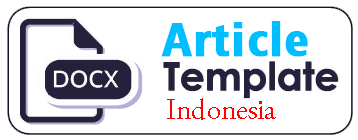The strategy of generation Z leaders in managing ethical hacker in the meta4sec community in indonesia
DOI:
https://doi.org/10.54849/monas.v5i1.174Keywords:
leadershipAbstract
This study aims to find out how the strategies of a young Generation Z (Gen-Z) leader can help realize community goals that refer to the vision and mission of the organization, as well as obtain information on how all elements in the community can work together and collaborate in developing ethical hackers in the hacker community. The research method was carried out using qualitative methods, namely in-depth interviews which are in-depth interviews involving one on one interaction between the researcher and the respondent. Interviews were conducted with one community manager, one founder, and three community members, in the Meta4sec community analysis unit. This research found that Gen-Z character leadership is a generation that has the pleasure to work collaboratively and appreciates a team approach in solving problems and getting solutions. This collaborative leadership style includes the ability to listen, get team members involved, stimulate contributions from all active members, and build a positive and inclusive community environment and answer problems related to lack of management experience, generational differences, difficulties in communicating and working together, so that it proves to be effective make this community growing day by day. Through this research, it can be seen that the management and strategies carried out by the Meta4sec community are able to survive and attract many new members to easily learn and consult regarding ethical hackers.
Downloads
Published
Issue
Section
License
Authors who publish in this journal agree to the following terms:
- Authors retain copyright and grant the journal right of first publication with the work simultaneously licensed under a Creative Commons Attribution-NonCommercial-ShareAlike 4.0 International License that allows others to share the work with an acknowledgement of the work's authorship and initial publication in this journal.
- The journal allows the authors to hold the copyright without restrictions and to retain publishing rights without restrictions.
- Authors can enter into separate, additional contractual arrangements for the non-exclusive distribution of the journal's published version of the work (e.g., post it to an institutional repository or publish it in a book), with an acknowledgement of its initial publication in this journal.







